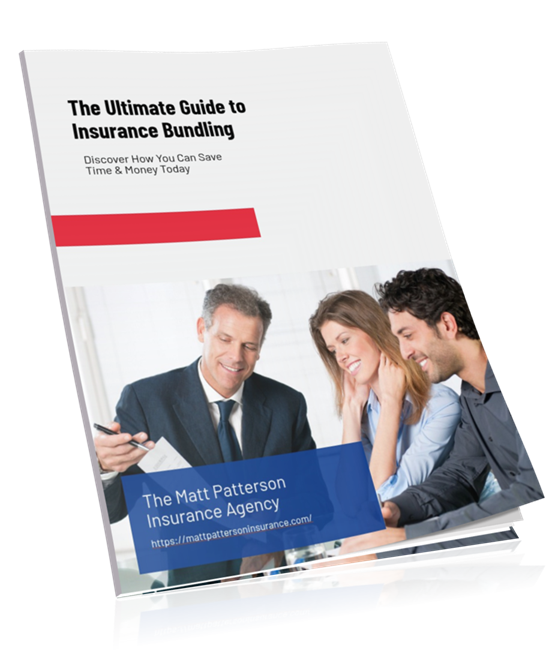Umbrella insurance provides an additional layer of liability coverage that goes beyond your existing San Marcos insurance policies, such as homeowners or auto insurance. Understanding liability coverage is important, as it protects you from financial ruin due to injuries or property damage you may cause to others.
Below, we’ll explore:
- The definition and function of umbrella insurance
- Who stands to benefit the most from it
- The advantages it offers
- Coverage limits and costs associated with it
- Comparison with other liability options
- Tips for selecting the right policy
What is Umbrella Insurance?
Umbrella insurance serves as an additional layer of liability protection beyond your standard policies, such as home and auto insurance. When you ask yourself, what is umbrella insurance? Think of it as a safety net that kicks in when the limits of your primary policies have been exhausted.
Key Features of Umbrella Insurance:
- Extended Coverage: Provides coverage for incidents like bodily injury, property damage, and personal liability claims that may not be fully covered by your existing insurance.
- Legal Defense Costs: Covers legal fees associated with claims, even if the lawsuit exceeds your primary policy limits.
- Global Protection: Offers worldwide coverage for incidents that occur outside of your home country.
How Does Umbrella Insurance Work?
When an unfortunate event leads to a lawsuit, your primary insurance will first handle costs up to its limit. If those expenses surpass what your underlying policy covers, umbrella insurance is activated. This can include costs related to:
- Slander or libel
- Incidents involving pets or swimming pools
- Accidental injuries to guests on your property
Umbrella insurance acts as a financial shield against unexpected liabilities, ensuring you are better protected from potential financial ruin.
Who Needs Umbrella Insurance?
Umbrella insurance is an additional coverage that can benefit specific individuals and situations. Here are some categories to consider:
1. Property Owners
If you own a home or rental property, you may face higher liability risks. Accidents happening on your premises could result in significant financial liabilities.
2. High Net Worth Individuals
If you have substantial assets like investments, savings, and real estate, it’s important to assess your risk exposure. An unexpected lawsuit can jeopardize your financial stability.
3. Individuals with Specific Risk Factors
Certain lifestyle choices or possessions can increase your liability exposure:
- Pools and Trampolines: These recreational features can lead to accidents, making owners more vulnerable to lawsuits.
- Pets: Certain dog breeds may pose a higher risk of bites or injuries, which could exceed normal homeowners’ liability limits.
- Frequent Hosts: If you regularly entertain guests, the risk of accidents occurring on your property may also rise.
4. Participants in High-Risk Activities
Engaging in activities such as coaching sports, volunteering for organizations, or participating in injury-prone sports can heighten the likelihood of facing legal claims.
Benefits of Umbrella Insurance
Understanding the benefits of umbrella insurance can provide you with peace of mind and financial security. This type of policy offers several advantages that extend beyond standard liability coverage:
1. Broader Coverage
Umbrella insurance protects against various liabilities, including bodily injury, property damage, and personal injury claims such as slander or libel. This ensures you are covered in scenarios that might not be addressed by your primary policies.
2. Cost-Effective Solution
The average cost for $1 million in coverage ranges from $150 to $300 per year. In contrast, the potential costs from a single lawsuit can far exceed this amount. Investing in umbrella insurance can save you from devastating financial burdens.
3. Legal Defense Costs
Umbrella policies cover legal fees associated with claims that exceed your underlying policy limits. This means that even if your primary insurance runs out, your umbrella will step in to protect you financially.
4. Worldwide Protection
Unlike many standard policies, umbrella insurance typically offers worldwide coverage, giving you peace of mind whether you are at home or traveling abroad.
These advantages highlight why exploring the benefits of additional liability coverage through umbrella insurance is crucial for individuals seeking comprehensive protection from unforeseen events.
Understanding Coverage Limits and Costs
When considering umbrella insurance, understanding coverage limits and associated costs is crucial. Typical coverage amounts for umbrella policies often start at $1 million, with options to increase based on your needs.
Factors Affecting Coverage Limits:
- Net worth: Your total assets help determine how much coverage you should consider. A general rule is to match the umbrella coverage amount to your net worth.
- Liability risks: Individuals with higher exposure to lawsuits or accidents may require more substantial coverage.
Cost of Umbrella Insurance:
The cost of umbrella insurance can vary significantly, typically ranging from $150 to $300 per year for $1 million in coverage. Several factors influence this pricing:
- Location: Risk levels associated with your area can affect premiums.
- Underlying policies: Insurers often require minimum liability limits on your auto and homeowners’ policies, impacting overall costs.
- Credit history and driving record: A positive record may lower rates.
How much umbrella insurance do you need? To find a suitable amount, assess your asset values, existing liability coverage, and personal risk factors. This comprehensive evaluation ensures adequate protection against potential liabilities that might exceed standard policy limits.
Comparison with Other Liability Options
When evaluating liability coverage, understanding the differences between umbrella insurance and excess liability insurance is crucial. Each serves a unique purpose in protecting your assets.
Umbrella Insurance
- Provides broader protection.
- Covers legal fees and damages for slander, libel, and personal injury.
- Extends beyond existing policies, including auto and homeowners.
- Ensures coverage against incidents not included in underlying policies.
Excess Liability Insurance
- Primarily increases liability limits on existing policies.
- Does not cover personal injury claims like defamation or false imprisonment.
- Limited to specific situations outlined in the primary policy.
Key Comparisons
- Scope of Coverage: Umbrella insurance offers a wider range of protection compared to excess liability insurance, which focuses strictly on increasing limits.
- Limitations: Umbrella policies can cover a variety of scenarios such as dog bites or accidents involving rental properties, while excess liability is constrained to the terms of the underlying policy.
Understanding these distinctions helps you determine the most suitable option for your needs. Assessing your lifestyle, assets, and potential risks will guide you toward making an informed decision regarding your liability coverage.
Buying Umbrella Insurance
Selecting the right umbrella insurance policy requires careful consideration. Here are essential tips for buying umbrella insurance:
- Assess Your Needs: Evaluate your current liability coverage and identify any gaps. Consider your assets, lifestyle, and any specific risks you may face.
- Minimum Liability Requirements: Most insurers require you to have certain minimum liability limits on your underlying policies (homeowners, auto). Ensure you meet these requirements before purchasing.
- Compare Quotes: Obtain quotes from multiple insurers. This helps you understand price variations and coverage options available in the market.
- Understand Policy Terms: Read the fine print of each policy. Look for details regarding exclusions, coverage limits, and any additional benefits offered.
- Consider Bundling: Many insurers offer discounts if you bundle your umbrella policy with existing auto or homeowners’ insurance. This can lead to significant savings.
- Check Insurer Reputation: Research each insurer’s claims handling process and customer reviews. A reputable company will provide better support when you need it most.
Why Umbrella Insurance Is Right for You
Evaluating your personal circumstances, including your current San Marcos home insurance, is crucial when considering umbrella insurance. Reflect on the following factors:
- Asset Value: Calculate your total net worth, including homes, vehicles, and investments.
- Lifestyle Risks: Identify activities that may expose you to higher liability, such as owning a pool or hosting frequent gatherings.
- Existing Coverage: Review your current insurance policies to find potential gaps in liability protection.
Assessing these elements helps determine if umbrella insurance is a suitable addition for your home or car insurance in San Marcos. Understanding how it fits into your overall risk management strategy can protect you from unforeseen events.
Frequently Asked Questions About Umbrella Insurance
What is umbrella insurance?
Umbrella insurance is a type of liability insurance that provides additional coverage beyond the limits of your primary policies, such as homeowners or auto insurance. It helps protect your assets in case of large claims or lawsuits.
Who needs umbrella insurance?
Individuals who might benefit from umbrella insurance include property owners, high net worth individuals, and those with specific risk factors such as owning a swimming pool or having pets. If you have significant assets to protect, umbrella insurance can be a wise choice.
What are the benefits of umbrella insurance?
The benefits of umbrella insurance include broader coverage for various liabilities and typically lower costs compared to potential claims. It offers peace of mind by providing an extra layer of financial protection against unforeseen events.
How much umbrella insurance do you need?
Typical coverage amounts for umbrella insurance start at $1 million. The amount you need depends on your personal circumstances, including your assets and potential risks. It’s essential to evaluate your situation to determine the appropriate coverage level.
How does umbrella insurance compare with other liability options?
Umbrella insurance differs from excess liability policies in terms of scope and limitations. While both provide additional liability coverage, umbrella policies often cover a wider range of incidents and can fill gaps not covered by primary policies.
What should I consider when buying umbrella insurance?
When purchasing umbrella insurance, consider factors such as your existing coverage limits, potential risks, and the financial stability of insurers. It’s important to compare different policies to find one that suits your needs and offers adequate protection.


